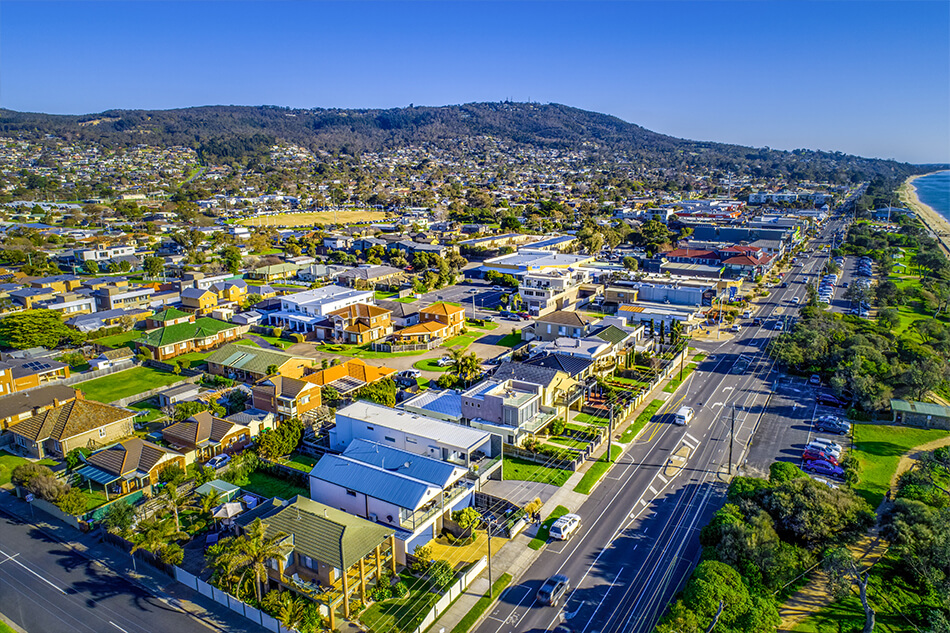- Key Takeaways:
- Why should I invest in real estate?
- Which investment property should I buy?
- How can I invest in property?
- How much would it cost to buy an investment property?
- Will I have to pay ongoing costs for my investment property?
- Will I pay tax on my rental income?
- How much would it cost to sell an investment property?
- What are the pros and cons of buying an investment property?
- Visit Lendstreet for professional investment property advice
- FAQs
Key Takeaways:
- Property investing is a low volatility market.
- Always research the area and rental potential of a property.
- There are many costs to consider when buying and selling an investment property.
- A mortgage broker can provide professional advice on property investing.
- Gain insight on investment property loan options.
Did you know over 2 million Australians own an investment property? Rising rental prices are enticing the average Aussie into investing in real estate, contributing to a secure future for their families.
What steps should you take when considering real estate investment? How easy is it to invest? Purchasing a property can be a daunting process, even for experienced investors!
Here is everything you need to know about buying an investment property.
Why should I invest in real estate?
Real estate is a market that will always be with us. After all, everyone needs a home today and in the future!
Despite property price booms and rare property price crashes, real estate is a reliable investment. It is not as volatile as other types of investment opportunities, although there is always a risk involved.
Renting the property to tenants will provide you with a regular income. You may be able to raise a high enough rental price to cover the mortgage repayments, minimising your regular costs.
Which investment property should I buy?
You should buy an investment property in a popular location, close to amenities, and where there is potential for growth. You want your property to be tenanted consistently and hopefully experience a rise in property price over time!
You must do your research! What are the current market trends in the area? Have you checked any local housing market indicators?
It is vital to remember that an investment property is precisely that: an investment! Buying a home you would like to live in is not a good strategy for real estate investors. You must be focused on achieving a positive monetary investment and maximising capital growth.
To discover your perfect real estate investment, consider:
- the local area and market trends
- recent property sales prices
- locations close to universities, hospitals, and schools.
- suburb demographics and local amenities
- how quick the local properties sell
Still not sure which location to invest in? Read Lendstreet’s Suburb Reports for up-to-date insights into the best Aussie suburbs and their investment potential!
How can I invest in property?
If you have a good credit history and are ready to put down your deposit, you can invest in property! Follow these easy steps to secure your property investment:
1. Assess your financial stability
Can you really afford to purchase an investment property? Work out how much you could comfortably pay for a property and how much deposit you will have ready. Remember that buying any property is a risk.
Ideally, you will have a 20% deposit at your fingertips, opening up better interest rates and favourable deals. A 20% deposit will mean you do not have to purchase Lenders’ Mortgage Insurance to cover the lender’s interests.
As well as the investment loan repayments and the initial deposit, there are additional costs to remember. Have you considered stamp duty fees, conveyancing fees, and inspection fees? You should also prepare for any rising interest rates to protect your financial situation and cash flow.
Always include a healthy contingency budget to cover such costs and anything unexpected.
2. What are you hoping to achieve?
Be clear about what your plans are for this investment property.
Are you hoping to rent out the property long-term, with a buy and hold property? Or are you looking for a short-term investment, perhaps a fix and flip property to make a quick profit?
3. Visit a mortgage broker
Contacting an expert mortgage broker is an important step for any potential investor. You can secure the latest advice and guidance for property investors in your area.
You can also provisionally apply for an investment property loan and find out what your repayments are likely to reach. Your professional broker can explore interest only and principal and interest investment property loans. Discover the best deals for your circumstances!
You can secure a pre-approved investment loan with your mortgage broker. Cement your investment decision and know exactly what property price range to search for.
4. Find an accountant
Discuss with an accountant the tax implications involved in purchasing an investment property.
Make sure you are aware of any additional costs you may be liable to pay. This includes fees payable now and later if you decide to sell the investment property in the future. An accountant will provide you with the latest insights from your state or territory.
5. Talk to a conveyancer
A qualified conveyancer can inform you about any legal fees and requirements. Arranging an experienced conveyancer before agreeing to a property purchase means that all steps are in place.
The purchase of the property should be effortless, whilst you know exactly what to expect!
6. Find the perfect investment property
With all steps in place, you can now begin property hunting! Make sure to search for properties with your head and not your heart.
You need to choose a great property as a secure financial investment, not a home you would like to move into.
7. Manage your investment property
So, you have bought an investment property and have some great tenants due to move in! However, your obligations to the property do not end there. Investment properties are long-term commitments and require around-the-clock management.
You could hire the services of a property management company that would oversee the day-to-day running of the property. A periodic fee would be charged for this service, although you would be relieved of most of the management duties.
How much would it cost to buy an investment property?
The cost of your investment property will depend on the property price and the state or territory you reside in.
As standard, a sizeable deposit and a significant stamp duty fee will be payable when buying an investment property. You will also need to pay conveyancing and legal fees, along with search fees and pest and building control report costs.
You will need to consider the following costs when buying investment properties:
| Costs Payable When BUYING Investment Property |
| A deposit of 20% of the property purchase value. |
| Stamp duty fees |
| Conveyancing and legal costs |
| Search fees required |
| Pest and building reports required |
Will I have to pay ongoing costs for my investment property?
You will need to pay several ongoing costs for your investment property. Some costs may be included in the rental price, although this depends on your contractual agreement with the tenant.
A property management company may also include some ongoing costs in their fee.
You will have to ensure that the following costs are paid:
| Ongoing Costs for Your Investment property |
| Council rates |
| Water rates |
| Building insurance |
| Landlord insurance |
| Land tax |
| Maintenance Costs |
| Body corporate fees |
| Property management costs |
Will I pay tax on my rental income?
If your investment is positively geared, you will pay tax on the income your receive from rent.
A positively geared investment is when you have surplus rent after your expenses and interest have been paid. You will have to pay tax on the surplus rental income.
How much would it cost to sell an investment property?
You need to pay capital gains tax when selling an investment property, providing you have made a profit. This is in addition to the standard costs of real estate fees, legal costs, and advertising costs that are payable.
Capital gains tax is part of your income tax. Any profits you have made from selling an investment property will be taxed. However, Australians who own the investment asset for over 12 months only need to pay tax on 50% of the profit.
Consider these costs if you want to sell an investment property:
|
Costs Payable When SELLING Investment Property |
| Fees charged by Real Estate Agents |
| Legal costs |
| Advertising costs |
| Capital gains tax |
What are the pros and cons of buying an investment property?
Still not sure whether you want to buy an investment property? Here are the pros and cons of becoming a real estate investor in Australia.
Pros
- If you want to invest money, property investment is a low-volatility market, perfect for a beginner!
- Anyone can invest in property if they have the finances to do so. No special training or qualifications are required at all!
- You can predict what to expect in the property market. Prices gradually rise, but every so often decline.
- An investor can make a reasonable price rise in a short-term investment, or create a considerable nest egg with a long-term investment.
- Over time, you may achieve capital growth, although this depends on the property market and local trends. If you retain an investment property for many years, you should experience a good capital growth increase.
- Renting the property to a tenant may cover all costs, such as loan repayment and property management costs.
- In higher geared investments, you may have surplus income from the rent after expenses have been paid.
- You may be able to offset expenses for your rental property against the rent you receive, resulting in tax deductions. You could include repayment loan interest with these expenses.
- You could give up your day job and become a full-time property investor! If you have the finances to do so and make the right decisions, there is nothing stopping you!
- Investing in property leaves you with a tangible asset!
Cons
- If you want to invest money, property investment is a low-volatility market, perfect for a beginner!
- Anyone can invest in property if they have the finances to do so. No special training or qualifications are required at all!
- You can predict what to expect in the property market. Prices gradually rise, but every so often decline.
- An investor can make a reasonable price rise in a short-term investment, or create a considerable nest egg with a long-term investment.
- Over time, you may achieve capital growth, although this depends on the property market and local trends. If you retain an investment property for many years, you should experience a good capital growth increase.
- Renting the property to a tenant may cover all costs, such as loan repayment and property management costs.
- In higher geared investments, you may have surplus income from the rent after expenses have been paid.
- You may be able to offset expenses for your rental property against the rent you receive, resulting in tax deductions. You could include repayment loan interest with these expenses.
- You could give up your day job and become a full-time property investor! If you have the finances to do so and make the right decisions, there is nothing stopping you!
- Investing in property leaves you with a tangible asset!
Visit Lendstreet for professional investment property advice
Lendstreet’s expert mortgage brokers can guide you every step of the way on your investment property journey. Gain an insight into the best Aussie suburbs to invest your money in!
Lendstreet’s specialist brokers will find your perfect investment loan opportunities, taking the pressure away from you! Possessing an Australian Credit Licence, you can trust Lendstreet’s advice!
Contact Lendstreet today and become a successful property investor!
Get the latest news and updates from Lendstreet
Join and subscribe to our newsletter.
FAQs
Do property investors achieve capital growth?
If the value of the property increases, the property investor will achieve capital growth. However, this is determined by the property market and is out of the property investor’s control.
You can try to buy an investment property once prices have crashed and declined from previous values. The property market will eventually experience a price rise once again, and you should see the value of your investment increase.
Is property a good investment?
Generally, property is an excellent area to invest in. However, outside factors such as the property market and interest rates affect this.
Research the property and the local area thoroughly to make the correct purchase. You should then be able to invest wisely and ensure that property investment is a good choice to make.
Do I need a property manager?
No, you don’t need a property manager for investment property buying. You can manage your investment property yourself if you have the time and the experience to do this successfully.
A good property manager will take care of the day-to-day operation of the investment property in return for property management fees. You will have less to do, and the managers will collect rental income for you. Although, you will still be liable for maintenance costs and other expenses.
Can I buy an investment property with a standard home loan?
No, if you are purchasing an investment property, you must apply for the correct financial product. Investment loans are perfect for property investment and work to benefit the investor.
Lendstreet’s expert mortgage brokers can tailor the best loan package for you and your financial situation. Their specialist service is free for you to use as Lendstreet receives its fee from the lender! Contact Lendstreet today for free advice!
Take our Investment Property Loan Guide with you.
Print, share, and read it offline.
Download Now
Schedule a call to one of our expert mortgage broker
Ask our expert mortgage brokers anything about home loans.
Related articles
In 2023, rental prices are through the roof. For investors, it’s a good better time to purchase a property ...
If you're looking to invest in Melbourne but don't know where to start, here are the best suburbs to look ...
Key Takeaways: Now is a great time to invest in property! Know your budget and the reasons why you want ...









